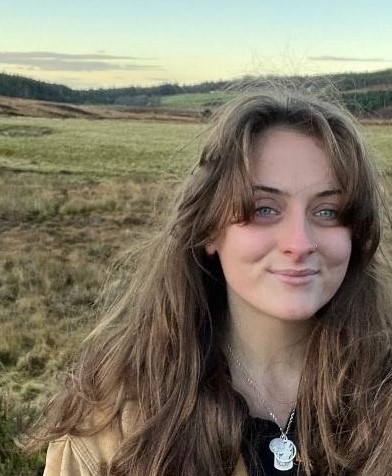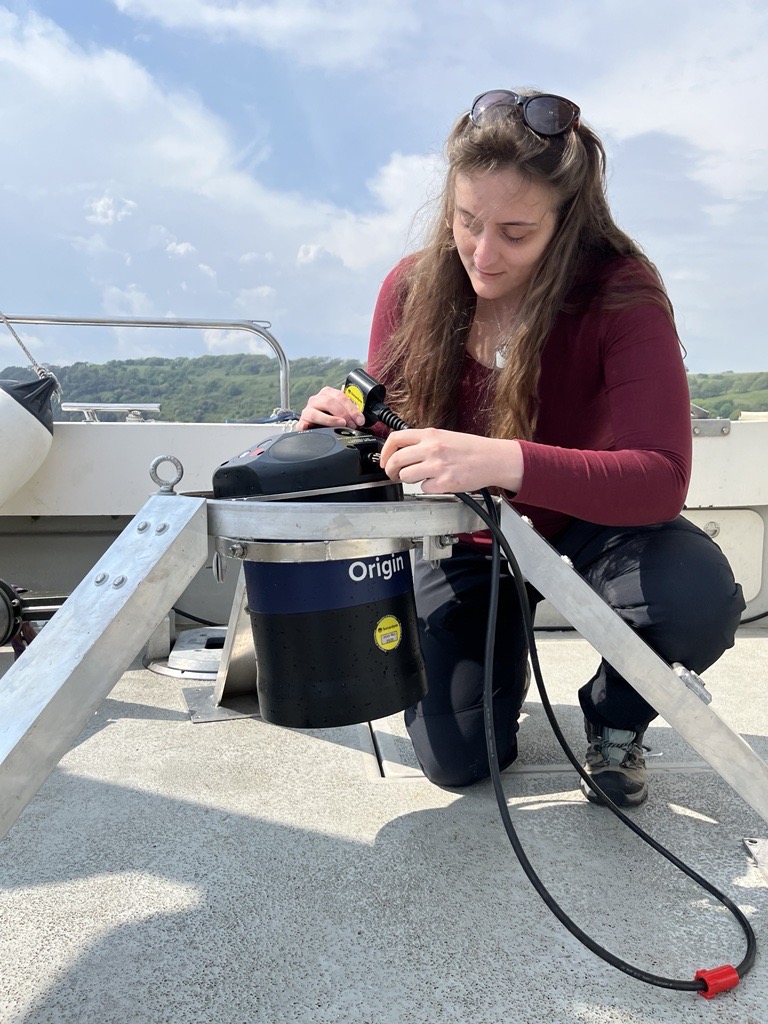Supporting education and academia plays an important part in our business at Sonardyne. In this first blog of our series exploring how we do this, we look at how our technology is being used to research environmental monitoring techniques for offshore renewable energy. But first, a bit more about our involvement with education.
At a local level, we support local colleges in many of their engineering-based programmes. This has included a significant donation to Alton College enabling them to complete their engineering and design technology building, named the Sonardyne Centre, in 2013. We also employ several apprentices from Alton and other surrounding colleges across all areas of our operations. More can be found out about some of our current apprentices here.
In Higher Education we have degree programme apprentices, supply technology for ocean research operations, work with academics on research papers and projects and sponsor PhD students undertaking marine technology related research.
One area attracting a lot of research interest is Offshore Renewable Energy (ORE). As countries across the globe search for cleaner, greener, energy alternatives many are turning to offshore wind farms for their power. With the growth of offshore wind farms comes the need to understand their impact on the marine environment. Therefore, research is crucial as ORE projects, such as tidal-stream and offshore wind energy expand in scale and complexity. Accurate and robust environmental data is needed for commercial and regulatory decision-making, from initial site characterisation to environmental impact assessments and ongoing monitoring post-implementation.
We sponsor research student Chloe Turner-Dockery, studying at the University of Highlands and Islands, Thurso, Scotland, on her PhD programme: “Validating next-generation biophysical and metocean monitoring techniques for offshore renewable energy.”

PhD student Chloe Turner-Dockery
Her three and a half year research programme will develop next generation monitoring techniques by integrating ecological and oceanographic data at fine spatial and temporal scales. These techniques will use hydroacoustic instruments, including echosounders and Acoustic Doppler Current Profilers (ADCPs), to provide comprehensive, non-invasive environmental monitoring.
The aim is to create cost-effective and risk-reducing methods for ORE monitoring by using sensors and platforms capable of collecting comprehensive data. The project is funded by the ETP Energy Industry Doctorate Programme via the Scottish Government, co-funded by UHI and Sonardyne, and co-supervised by the University of Aberdeen.
One of Chloe’s PhD supervisors is our ADCP group manager Tom Culverhouse, and our Origin ADCPs form a key part of her research toolkit. Her PhD programme covers three main areas:
Hydroacoustic Data Processing: This will develop methods to process ADCP and echosounder data for applications like fish school detection and assessing their effectiveness against traditional methods of detection.
Real-time Data Processing: Using existing data, and data collected during field trials, Chloe will work on enabling real-time decision-making capabilities on the devices, which can adapt sampling regimes and trigger other sensors during critical biophysical events.
Co-collection of Biophysical Data: This research will demonstrate the combined collection of biophysical data to monitor changes in biomass over time and depth, optimizing array-scale ORE monitoring. This will involve trials and collaborations with ongoing projects and at-sea testing.
Chloe explains; “By developing advanced monitoring and processing techniques, my aim is to enable the next step in uncovering the impact and potential disturbances caused by large scale arrays. This research will provide a more comprehensive understanding of how ORE developments interact with marine ecosystems, helping to quantify their impact. Ultimately, this will inform better decision-making and policy development, ensuring the sustainable expansion of ORE projects.”
Having started in February 2024, Chloe is at the early stages of the programme which follows her Undergraduate and Masters studies in Marine Biology but has already had experience of equipment trials using Origin 600. Practical experience as well as theoretical knowledge is vitally important for the advancement of marine technology as Tom Culverhouse explains:
“At Sonardyne we are fortunate to be working with institutes such as the University of Highlands and Islands (UHI) and the University of Aberdeen along with the world‑class graduate students they attract, like Chloe. UHI are a world‑leader in the impact on the natural environment of anthropogenic structures used to enable ORE. This thriving field provides a theoretical framework that is constantly and necessarily challenged by experimental field measurements. By engaging in this cutting‑edge research, Sonardyne can help drive the next‑generation of instrumentation to support ORE now and into a sustainable future.”

Chloe’s research involves a lot of hands-on experience using the latest ADCP technology.
Chloe also appreciates the benefit of access to the technology in support of her research. “Sonardyne’s support is fundamental to the success of my PhD project. Their technology and resources provide the necessary tools and platforms for advanced environmental monitoring techniques. Without their contribution, this research would not be possible. Their partnership not only facilitates access to essential equipment and data but also offers invaluable expertise and collaboration opportunities.” She adds; “My area of study has previously been focused on the biological aspects, so bringing together the physical side, as well as the technology for monitoring is very exciting to me. This allows me to broaden my understanding of the aspects involved in remote sensing and monitoring.”
As the offshore renewable energy market expands, we are proud to be able to provide the technology, expertise and support for the advancement of both academic research and industry operations.
We also sponsor other PhD students and work closely with several academic institutions in the UK and the USA. We’ll be bringing you more information about them on our website and social media soon.
